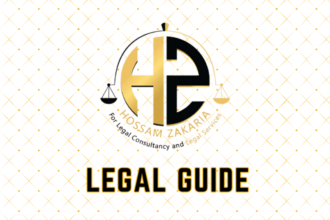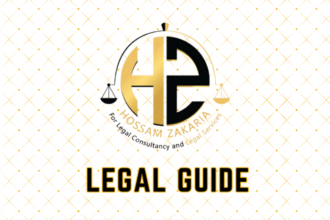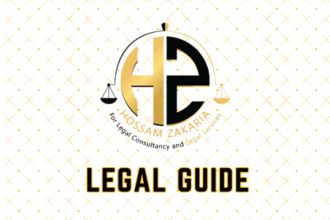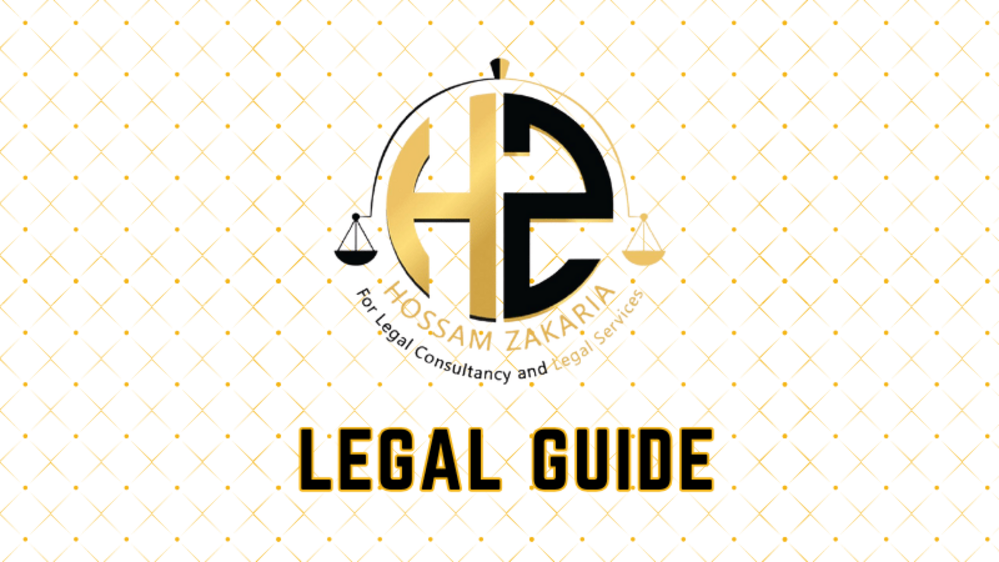Introduction: The Strategic Imperative for UAE Businesses in Saudi Aviation
As the Gulf’s aviation sector expands rapidly, the necessity for robust emergency response and crisis management frameworks has never been greater. Recent regulatory enhancements in the Kingdom of Saudi Arabia (KSA) governing aviation safety and emergency protocols present both strategic opportunities and compliance challenges for UAE-based enterprises active in the Saudi market. The significance of mastering these obligations cannot be overstated—effective compliance not only safeguards lives, assets, and reputation but also underpins the ongoing operational eligibility of any cross-border aviation endeavor.
This expert advisory addresses the nuanced requirements of Saudi aviation law as they relate to emergency response and crisis management, analyzing their implications for UAE businesses and subsidiaries. Drawing on recent legal developments, the article provides an actionable guide to compliance, risk mitigation, and best practice integration for executives, legal practitioners, and compliance officers operating at the frontline of international aviation.
In view of the evolving landscape—marked by the latest updates from the General Authority of Civil Aviation (GACA), and interfacing with new frameworks mandated by UAE Law and Federal Decrees—the following analysis is an indispensable compliance and strategy resource for UAE stakeholders in the Saudi aviation space.
Table of Contents
- Understanding the Saudi Aviation Regulatory Landscape
- Core Provisions on Emergency Response and Crisis Management
- Comparative Analysis: UAE and KSA Aviation Emergency Laws
- Risk Exposure and Practical Applications for UAE Businesses
- Case Studies and Hypothetical Scenarios
- Strategies for Robust Compliance and Operational Readiness
- Conclusion: Future Directions and Proactive Steps
Understanding the Saudi Aviation Regulatory Landscape
Legal Framework and Key Authorities
The regulatory environment for aviation in Saudi Arabia is primarily governed by the Civil Aviation Law (Royal Decree No. M/44 of 1443H) and detailed GACA regulations. Of particular consequence to UAE businesses are the executive bylaws addressing the management of emergencies such as aircraft incidents, cybersecurity breaches, pandemics, and major safety disruptions.
GACA’s authority encompasses licensing, operational oversight, and the imposition of sanctions for non-compliance. Its regulations draw upon standards from the International Civil Aviation Organization (ICAO)—to which both Saudi Arabia and the UAE are signatories—ensuring that legislative alignment facilitates cross-border operations but also increases compliance complexity.
Recent Regulatory Updates
In 2024–2025, landmark regulatory updates include:
- Enhanced operator obligations for maintaining and testing Emergency Response Plans (ERPs).
- Expanded mandatory reporting and communication requirements during crises.
- Greater scrutiny of foreign operator compliance, with penalties for procedural deficiencies.
Reference: GACA Regulations Part 119 (Air Operator Certification), Part 121 (Safety Management System), and relevant Ministerial Guidelines.
Core Provisions on Emergency Response and Crisis Management
Emergency Response Plan (ERP) Requirements
All aviation entities—airlines, ground handlers, and airport operators—are required to develop, implement, and periodically update a comprehensive Emergency Response Plan. Key legal requirements include:
- Alignment with ICAO Annex 19 and GACA’s detailed directives.
- Designation of a Crisis Management Team (CMT) with clear hierarchies and authorities.
- Regular simulation exercises and audits (minimum bi-annual, per GACA Part 139).
- Documentation and retention protocols for audit and inspection by GACA officials.
Mandatory Reporting and Notification
Immediate reporting of all aviation incidents and emergencies to both GACA and designated UAE authorities (as relevant to cross-border operators) is a statutory obligation. Information must be furnished in accordance with timelines stipulated in GACA’s Safety Management System Manual—immediate verbal notification, followed by written reports within 72 hours.
Coordination with National and International Agencies
Operators must ensure seamless coordination with Saudi civil protection authorities, local law enforcement, and—in cases involving UAE carriers or passengers—the relevant UAE consular and regulatory entities. Failure to coordinate or delays in communication expose the operator to severe administrative penalties and, potentially, criminal liability.
Table: Key Regulatory Requirements for Emergency Response
| Requirement | GACA Regulation | Application |
|---|---|---|
| ERP Development and Registration | GACA Part 139 | Mandatory for UAE air operators in Saudi airports |
| Crisis Communication Protocols | Ministerial Circular 2023-7 | Required for multi-jurisdictional incidents |
| Simulation and Audit | GACA Guidance 2024-04 | Bi-annual table-top and live drills |
| Incident Reporting | GACA Safety Management Manual | Immediate for notifiable emergencies |
Comparative Analysis: UAE and KSA Aviation Emergency Laws
Legal Synergies and Contrasts
For UAE businesses operating in Saudi Arabia, understanding the synergies and disparities between UAE and Saudi aviation regulations is critical to achieving total compliance. In the UAE, emergency management is governed by:
- Federal Law No. 20 of 2021 on Civil Aviation (as amended in 2024)
- Federal Decree-Law No. 33 of 2021 on Labour Relations, for HR-centric emergency protocols
- UAE General Civil Aviation Authority (GCAA) Safety Directives
While both jurisdictions require ERPs and crisis communication, the specific thresholds for mandatory action, reporting periods, and local authority engagement differ.
Penalty Comparison Table: Old vs New Rules
| Issue | KSA Law Pre-2023 | KSA Law 2024-2025 | UAE Law (2025 updates) |
|---|---|---|---|
| ERP Requirement | Annual reviews, basic drills | Bi-annual audits, ICAO-alignment | Real-time testing, live drills, cross-border protocols |
| Incident Reporting | Written within 7 days | Immediate (+72h written) | Electronic, immediate (+24h official) |
| Penalties | Fines up to SAR 100,000 | Fines up to SAR 1M, suspension | Fines AED 500k+, operational freeze |
Suggested Visual: A penalty comparison chart illustrating the escalation in regulatory stakes across both jurisdictions from 2023 to 2025.
Organizational Impact
Failure to adhere to these converging standards—such as neglecting to maintain real-time communication or overlooking drill requirements—can lead to suspension from GACA’s registry and parallel action by UAE regulators, jeopardizing future bilateral routes and partnerships.
Risk Exposure and Practical Applications for UAE Businesses
Legal Risks of Non-Compliance
For UAE aviation companies present in Saudi Arabia, the risks of non-compliance are multifaceted:
- Administrative Penalties: Significant fines, suspension, or cancellation of air operator certificates.
- Criminal Prosecution: In cases of gross negligence leading to major incidents or loss of life.
- Civil Liability: Exposure to claims from passengers, business partners, and impacted third parties.
- Reputational Damage: Loss of market confidence, regulatory blacklisting, operational disruption.
Legal practitioners representing UAE entities are advised to monitor GACA’s regular bulletins and Ministerial alerts, as regulatory expectations evolve swiftly, and enforcement is robust.
Best Practices for Risk Mitigation
- Continuous Monitoring: Assign responsibility to a named compliance officer for tracking updates from both GACA and GCAA.
- Dual-Jurisdiction Training: Implement regular emergency drills covering both KSA and UAE regulatory protocols.
- Integrated Communication Channels: Maintain 24/7 operational and legal points-of-contact recognized by both jurisdictions.
- Robust Documentation: Ensure all ERP activities, drills, and communications are logged for at least five years, as per latest GACA audit guidelines.
Compliance Checklist (Suggested Table Visual)
| Item | Status | Responsible Party | Last Review Date |
|---|---|---|---|
| ERP Updated | Yes/No | Compliance Manager | [Insert Date] |
| Simulation Drill Conducted | Yes/No | HR Lead | [Insert Date] |
| Incident Reporting Protocols | Yes/No | Legal Counsel | [Insert Date] |
| Cross-Border Coordination | Yes/No | Country Manager | [Insert Date] |
Case Studies and Hypothetical Scenarios
Case Study 1: Aircraft Incident Response
Scenario: A Dubai-based charter operator, licensed under GACA and GCAA, faces an in-flight emergency over Saudi territory. The operator initiates their ERP and notifies both authorities within the required window. Their compliance with both Saudi and UAE protocols averts penalties and garners commendation.
Consultancy Insight: Timely, coordinated action—backed by documentation and dual-jurisdiction engagement—maximizes legal defensibility and minimizes operational disruption.
Case Study 2: Cybersecurity Crisis Affecting Ground Operations
Scenario: A UAE-owned ground handling company experiences a cyberattack at a Jeddah airport terminal, threatening passenger data and flight safety. By following their ERP—tested as part of GACA’s 2024 bi-annual drills—they coordinate with both GACA and the UAE GCAA, mitigating regulatory action.
Risk Analysis: Cyber-resilience within ERPs, including non-aviation emergencies, is now essential. Legal teams must ensure ERPs are updated to reflect GACA’s 2024 requirements, including threat simulations and cross-border notifications.
Hypothetical Example: Pandemic-Related Emergency Activation
Saudi and UAE regulations both required rapid activation of pandemic response plans (e.g., COVID-19). Operators who failed to update ERPs to address infection control, repatriation protocols, and passenger welfare were subject to severe penalties and found their operational privileges curtailed.
Strategies for Robust Compliance and Operational Readiness
Integrated ERP Design and Testing
Effective compliance demands ERPs that are tailored for dual-jurisdiction operations and include:
- Clear allocation of crisis management roles, including a designated UAE-Saudi liaison.
- Pre-defined communication templates covering both GACA and GCAA requirements.
- Legal contingency plans, such as immediate access to UAE-based legal counsel with Saudi recognition.
- Periodic legal reviews to match regulatory updates (at least bi-annually).
Human Resource and Training Obligations
UAE Federal Decree-Law No. 33 of 2021 has elevated the HR component of emergency compliance. Employees—including expatriate staff—must be trained in both KSA and UAE protocols, with records maintained for inspection by either regulator. Non-compliance with training mandates now incurs direct administrative penalties by GACA.
Board and Senior Management Accountability
Saudi laws, paralleling recent UAE updates, now emphasize individual as well as corporate accountability. Directors and C-suite executives can be held personally liable for failure to ensure that robust ERPs are implemented and effective, particularly where lapses result in injury or loss.
Digital Solutions and Real-Time Auditability
Operators are encouraged to implement digital platforms for ERP management, including mobile-enabled emergency alerts, digital logbooks, and secure cloud documentation that meet both GACA and GCAA audit standards.
Suggested Visual: A process flow diagram illustrating steps from initial emergency notification to incident closure and regulator reporting.
Conclusion: Future Directions and Proactive Steps
The convergence of UAE and Saudi aviation regulatory standards—to include enhanced crisis management and emergency response—will continue shaping the strategic choices of UAE enterprises in the region. As KSA tightens enforcement and introduces new digital monitoring systems, and as the UAE enacts Federal Law updates through 2025, businesses face higher stakes but also clearer roadmaps to operational excellence.
Key Takeaways:
- Strict adherence to both GACA and GCAA emergency protocols is now foundational for operational continuity for any UAE entity doing business in Saudi aviation.
- Penalties for non-compliance have increased dramatically, targeting both organizations and individuals.
- Investment in dual-jurisdiction ERP training and real-time communication systems is no longer optional, but a legal necessity.
Moving forward, legal and risk teams must:
- Conduct regular ERP audits aligned with the latest federal decree UAE and GACA regulations;
- Implement continuous staff training in cross-border emergency management;
- Engage proactively with regulators in both countries to anticipate legal developments.
By adhering to these best practices, UAE businesses can ensure compliance, operational resilience, and strategic advantage in the regional aviation sector through 2025 and beyond.



